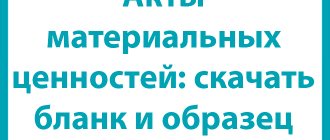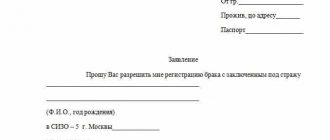Grounds for reducing the fine for a tax offense
By virtue of Art. 114 of the Tax Code of the Russian Federation, if the presence of mitigating circumstances is established in a tax offense case, the fine for its commission must be reduced by at least 2 times. The person involved can declare this by filing a petition to reduce the fine.
Mitigating circumstances are recognized by virtue of Art. 112 of the Tax Code of the Russian Federation:
- Committing a violation due to a combination of difficult circumstances (personal or family).
- Violation of the requirements of the Tax Code of the Russian Federation, if the violator was threatened or forced to commit an offense.
- If the violation is committed due to official or financial dependence on any person.
- Difficult financial situation of the offender.
In addition, one can refer to remorse for the violation committed, lack of intent to cause unlawful consequences, and full repayment of tax debt after the initiation of the case.
Other mitigating circumstances
The following may be considered other mitigating circumstances.
- Minor delay:
- transfer of tax within a small number of days after the due date;
- filing with a slight missed deadline for notification, declaration, calculation, etc.
- Admission of guilt and elimination of errors:
- admission of guilt;
- payment of tax;
- absence of debt at the time of decision;
- elimination of damage;
- independent identification and elimination of errors, etc.
- committing an offense for the first time;
- the minor nature of the offense;
- no adverse economic consequences;
- no damage to the budget;
- conscientious performance by the taxpayer of his duties;
- presence of constant overpayment;
- lack of intent to commit an offense, etc.
Rules for drawing up a petition
Petitions to reduce the fine are made in writing, in any form. The document is handed over to the official who is considering the case, or to the judge. It describes the grounds according to which the citizen being prosecuted wants to reduce the fine. The list of reasons is given above.
It is advisable to attach evidence to the petition that substantiates the circumstances specified in the document. For example, if the violator cannot pay the fine due to a difficult financial situation, it is advisable to attach a 2-NDFL income certificate; information about dependent children; information about credit and other debt obligations, and others.
The content of the petition may be as follows:
- Information about the case under consideration: article of the Code of Administrative Offenses of the Russian Federation or the Tax Code of the Russian Federation, circumstances of the violation.
- Link to legal provisions containing grounds for reducing the fine (we outlined them above).
- A request to reduce the fine, the amount of the fine that the applicant wishes to pay.
- Applicant's signature.
What circumstances mitigate punishment?
In accordance with Art. 61 of the Criminal Code of the Russian Federation, the court has the right to take into account any information that positively characterizes the perpetrator. This norm lists the main criteria in favor of the perpetrator, but their list is not exhaustive:
- the commission by a person of a crime for which no more than 5 years of imprisonment is provided, in a random coincidence. It should be noted that judges rarely use such wording in practice. This is explained by the fact that most crimes for which criminal liability is provided are classified as intentional, that is, committed not by accident. As for careless acts (for example, a fatal collision with a pedestrian), loyalty to such convicts is already taken into account in the sanctions of these articles of the Criminal Code, where the punishment is already comparatively milder. For these reasons, a combination of circumstances in rare cases is recognized as a basis for mitigating the situation of the convicted person.
- the perpetrator is under 18 years of age. Being a minor is an absolute basis for mitigating liability. According to some provisions of the criminal law, a teenager cannot be sentenced to more than 10 years, even for particularly serious crimes (for example, murder or terrorism). In addition, the lower limit of the sanction of any article for a minor is reduced by half. For example, if for robbery with entry into a home an adult defendant faces from 7 to 12 years in prison, then a minor faces from 3.5 to 10 years.
- the accused woman's pregnancy. With a supporting medical document, pregnancy, regardless of the duration, always entails a more lenient punishment.
- the accused has minor children. Defendants often use the opportunity to reduce their sentences by obtaining birth certificates that list them as the father. The court is obliged to find out whether the children are dependent on the perpetrator and whether he pays alimony in the event of a divorce. Children cannot be the basis for a preferential sentence if the accused is deprived of parental rights or the crime in question was directed against a child.
- committing a crime due to difficult life circumstances, as well as out of compassion for the victim. Judges take such grounds into account quite rarely, but still in judicial practice there are such examples - theft of food by a person in an extremely difficult financial situation due to hunger. Each situation is individual. For example, if a close relative is seriously ill, theft of illegal drugs from a pharmacy or hospital may be regarded as difficult life circumstances.
- the commission of a crime is the result of mental and physical pressure, including from management, from whom the person is professionally dependent. For example, when a superior, under threat of beating, forces a serviceman not to report the illegal use of a weapon; when the chairman of the medical commission puts pressure on the doctors included in the composition, etc. In such cases, the court may recognize such facts of influence on people as mitigating, provided that the perpetrators were forced to obey and could not do otherwise.
- criminal acts were the result of exceeding the necessary defense. It is well known that every person has the right to use self-defense against attack by others acting with obvious criminal intentions. At the same time, the law requires compliance with proportionality - this is an evaluative concept that takes on an individual meaning in each specific situation. If a person is hit with the palm of his hand, and in response he kills with a knife to the heart, the limits of necessary defense will be exceeded. Such circumstances mitigate guilt and punishment.
- provocation on the part of the victim. Cruel name-calling on a “sick” topic for a person (the death of loved ones, major failures in life) can prompt him to respond in an illegal way - to hit, damage property, etc. The culprit will be punished, but the provoking actions of another person will certainly soften his situation.
- confession. This is a voluntary admission of a person to have committed a criminal act and can be submitted either in writing or orally. It is important to understand that appearance results in a reduced sentence only under certain conditions. For example, an appearance may not be taken into account by the court if it is submitted when the person has already been brought to justice and evidence of guilt has been collected. Turning in reduces the penalty if a person makes a confession before the police solve the crime. You can read more about confession in our separate article.
- full compensation for harm to the victim, providing him with medical care immediately after the incident. Instead of compensation for moral and material damage in monetary terms, the law allows the adoption as a mitigating criterion of actions aimed at making amends for harm (medical care, assistance in everyday life and other matters).
As we have already written, the list presented is not exhaustive. The court has the right to take into account almost any circumstance that it considers mitigating (being dependent on sick parents, the state of health of the convicted person, positive characteristics and achievements in the field of science, sports, etc.).
The court does not issue a separate ruling recognizing one or another fact from the biography as mitigating. The taking into account of personal data must be indicated in the verdict or resolution, otherwise there will be grounds for canceling the court decision.
Is it possible to apply for an installment plan for a fine and how to do it?
A petition for installment payment of a fine can be filed both in an administrative offense case and in a tax case. In an administrative case, it is filed on the basis of Art. 31.5 of the Code of Administrative Offenses of the Russian Federation, and for tax purposes - on the basis of Art. 64 Tax Code of the Russian Federation.
According to the Code of Administrative Offenses of the Russian Federation, a fine can be paid in installments for a period of up to 3 months. When a request for an installment plan is granted, the decision indicates that an installment plan has been granted, the amount of the monthly payment and the installment period.
As for tax offenses, the possibility of paying a fine in installments is provided for in Art. 64 Tax Code of the Russian Federation. An application can be submitted to the tax authority, and if it is found to be justified, then an installment plan will be granted.
Impact on the type and amount of punishment
Let's assume that there are several mitigating circumstances in relation to a person, plus there are petitions from different people for leniency. What kind of punishment will the court choose?
In such cases, the judge is required to apply Article 62 of the Criminal Code of the Russian Federation. According to this norm, the circumstances listed in Article 61 of the Criminal Code of the Russian Federation must be unconditionally taken into account by the court. In other words, the judge is obliged to “weigh” everything positive about the personality of the defendant and the crime itself that he committed. It is clear that the perpetrator of a brutal murder will not be given a suspended sentence due to excellent reviews from colleagues and good attitude towards children. Proportionality and reasonableness in assessing circumstances are the guidelines to which the Supreme Court of the Russian Federation draws the attention of the servants of Themis in its decisions.
Question: It turns out that there are no rules about how much punishment to assign to whom and how to take into account positive factors?
Yes, with the exception of several mitigating circumstances, the nature of which obliges the judge not to exceed 2/3 of the maximum punishment sanctioned by the article:
- confession;
- voluntary compensation for damage;
- active assistance in solving a crime, cooperation with the investigation;
- medical and other necessary assistance to the victim as a result of the crime.
Only these four circumstances (one of them or several at the same time) are the basis for imposing a sentence of no more than 2/3 of the maximum possible term.
Example No. 1. Sokolov I.S. committed theft with entry into the premises, that is, paragraph “b” of Part 2 of Art. 158 of the Criminal Code of the Russian Federation (maximum punishment - up to 5 years in prison). He admitted guilt, wrote a confession during the investigation and compensated the victim for damages. The court considered it possible to assign Sokolov, taking into account mitigating circumstances, a sentence of imprisonment for a period of 2 years (it turns out that less than 2/3 of the maximum).
It should be noted that failure to comply with this rule and the imposition of a more severe punishment than 2/3 of the maximum entails the recognition of the sentence as illegal; in the appellate instance this is a 100% basis for canceling or changing the sentence with the imposition of a more lenient punishment.
An exception to the rule “no more than 2/3” is the presence of aggravating circumstances on the part of the convicted person (recidivism, committing a crime against a minor, being intoxicated at the time of the criminal act, etc.). If there is at least one aggravating criterion, the court has the right to assign more than 2/3.
Example No. 2. Mironov K.E. committed robbery with the use of violence, that is, paragraph “g” of Part 2 of Art. 161 of the Criminal Code of the Russian Federation (maximum possible punishment - 7 years in prison). Mironov helped solve this crime and made amends for the harm caused. But this is not the only fact of criminal prosecution in his biography. Previously Mironov K.E. He had already been convicted of an intentional crime and was serving time in a colony for it. Since the court found signs of relapse (an aggravating factor) in Mironov’s actions, he was sentenced to 5 years in prison, that is, more than 2/3.
In recent years, the number of cases considered by courts under special proceedings (i.e., a shortened version of the examination of evidence in case of a full admission of guilt by the defendant) has been increasing. You can read more about this procedure in our article. In accordance with the Code of Criminal Procedure of the Russian Federation, a shortened version of the consideration of cases is possible for crimes for which no more than 10 years of imprisonment are provided. At the same time, the law guarantees a punishment not exceeding 2/3 of the maximum for a defendant who declares the case to be considered under such a procedure. If there is a confession or another circumstance entailing a mandatory mitigation of the sentence, the final term will be calculated according to the rule “2/3 of 2/3”.
Example No. 3. Markov A.P. committed fraud under Part 3 of Art. 159 of the Criminal Code of the Russian Federation (maximum period of sanctions - 6 years). He wrote a confession to the investigator and declared a special procedure in court. Due to the fact that the case was considered in an abbreviated manner, it is necessary to count 2/3 of 6 years = 4 years (no more than this period can be assigned to Markov by the court due to the simplified procedure). Then, taking into account the confession, the court counted 2/3 of 4 years = 32 months, that is, 2 years 8 months (the final punishment with all benefits, the amount of which the court has no right to exceed). Markov was sentenced to 2 years and 6 months in prison.
Is it possible to file a motion to waive penalties?
Such a petition can theoretically be filed within the framework of a case of an administrative offense if the sanction of the article provides for an alternative to imposing a fine - the application of punishment in the form of a warning. In this case, it is necessary to understand what the judge or official takes into account when assigning punishment.
So, by virtue of Part 2 of Art. 4.1 of the Code of Administrative Offenses of the Russian Federation takes into account:
- The nature of the offense (how serious it is).
- Identity of the culprit.
- Property status.
- Mitigating and aggravating circumstances.
If you submit such a petition, it must indicate that the violation did not entail serious consequences (if so), that the perpetrator is characterized positively (provide characteristics, awards, etc.), that he has an unfavorable financial situation (documents that confirm we listed above) that he has mitigating circumstances (their list is also stated above).
At the same time, we do not provide a sample petition for non-application of penalties, since if there are grounds for this, the penalty should be automatically replaced from a fine to a warning. Read more about this in our material.
Thus, a petition to reduce the amount of a fine, as well as petitions to extend the fine in installments, can be written in any form. The document must indicate the grounds on which the fine is subject to reduction. A sample application can be downloaded from the link below.
To what extent can an administrative fine be reduced?
After reducing the amount, the new amount of the administrative fine cannot be less than 50% of the minimum amount of the fine provided for by law. The law does not provide for a reduction of the fine to an even greater extent (decision of the Sverdlovsk District Court of Irkutsk dated May 22, 2015 in case No. 12-343/2015).
Before the amendments introduced by the Law “On Amendments...” dated December 31, 2014 No. 515-FZ came into force, the courts could indeed reduce the amount of the fine within large limits. However, Art. 4.1 establishes precisely the regulations for changing the amount of the fine, and not the type of liability. Accordingly, this provision cannot be considered as worsening the situation of the person who committed the offense (resolution of the 14th AAS dated 05/07/2015 in case No. A05-14756/2014).
We are drawing up a petition to reduce the punishment below the lower limit
A petition to reduce the punishment below the lowest limit must first of all be well documented. It is necessary to collect all possible evidence - certificates, statements, receipts, etc. The more, the better. To make a decision on a significant reduction in punishment, the official or judge must have compelling reasons.
In addition to mitigating and special circumstances, the petition can make reference to the insignificance of the administrative offense.
Article 2.9 of the Code of Administrative Offenses of the Russian Federation gives a judge or official the right to release the offender from administrative liability and limit himself to an oral reprimand if the offense is considered minor.
The concept of insignificance is disclosed in Art. 2.9 of the Code of Administrative Offenses of the Russian Federation and in paragraph 18 of the Resolution of the Plenum of the Supreme Arbitration Court of the Russian Federation dated June 2, 2004 N 10 “On some issues that arose in judicial practice when considering cases of administrative offenses.”
In paragraph 18.1 of the Plenum of the Supreme Arbitration Court it is also explained that “..When qualifying an administrative offense as minor, the courts should take into account that Article 2.9 of the Code of Administrative Offenses of the Russian Federation does not contain clauses on its non-application to any offenses provided for by the Code of Administrative Offenses of the Russian Federation.” Thus, the reference to insignificance can be applied to any offense, even if the relevant article of the Code of Administrative Offenses of the Russian Federation does not provide for a reduction in punishment.
Important! If you want to reduce the fine that may be imposed on a company that is a non-profit organization, or is a small, medium-sized business, or a person engaged in business activities without forming a legal entity, it makes sense to indicate this fact in the application and confirm it with an extract from the relevant registry, because the above size and form of the enterprise are grounds for issuing a warning instead of a fine, if the conditions listed in Part 2 of Article 3.4 of the Code of Administrative Offenses of the Russian Federation are met (an administrative offense committed for the first time, no harm or threat of harm to the life and health of people, objects of flora and fauna, environment, cultural heritage sites (historical and cultural monuments) of the peoples of the Russian Federation, state security, threat of natural and man-made emergency situations, absence of property damage).
When drawing up a petition, you can also indicate circumstances that may arise as unfavorable in the event of payment of a fine or application of other punishment in accordance with an article of the Code of Administrative Offenses of the Russian Federation.
For example, if, as a result of the organization paying the full amount of the fine, the financial situation deteriorates so much that the organization is on the verge of bankruptcy or will not be able to pay wages to employees. In such cases, the consequences clearly do not correspond to the goals of the administrative punishment, and it is likely that the amount of the fine will be significantly reduced or replaced with a warning.
Application for the addition of a court fine
Try to submit to the court an application for the addition of a court fine if the court has applied such sanctions. An application can be made by a person who has been fined or by another person who has a power of attorney to represent interests in court.
A judicial fine is applied in accordance with the Code of Civil Procedure of the Russian Federation: failure to comply with court requirements to provide materials when requesting evidence in a civil case, violation of deadlines for conducting an examination in civil cases, violation of order in a court hearing, etc.
An application to add a court fine or to reduce its size must be filed within a certain time frame and include certain information. So that the court can grant such a request.
:
Application for the addition of a court fine
Forced labor
Currently, mitigation of a sentence of imprisonment is possible by replacing it with so-called forced labor - a relatively new type of punishment, which is not yet widespread in Russia.
Forced labor is provided for in Article 53.1 of the Criminal Code of the Russian Federation and consists in the fact that the convicted person is sent to a special correctional center where he works (instead of imprisonment). At the same time, from his salary to the state income is withheld from 5 to 20%. In a certain sense, this type of punishment is similar to correctional labor, but the difference between forced labor is that the latter is served in isolation.
Currently, mitigation of punishment by forced labor is used extremely rarely by judges (for 2022 - in relation to just over 500 convicts). This is explained by the fact that in Russia so far only 8 correctional centers and 15 isolated places in colonies have been created and are functioning, where such training is possible.
Replacing imprisonment with forced labor can only apply to convicts who have been sentenced to a term of no more than 5 years.
Consideration of an application for the addition of a court fine
An application for the addition of a court fine received within 10 days from the date of receipt of the court ruling is considered at a court hearing. Only the applicant is notified of the date and time. His failure to appear does not affect the possibility of consideration of the application on its merits. But we recommend visiting it to be able to provide additional explanations.
The judge makes a decision based on the content of the documents and the evidence presented. Moreover, the evidence must be presented in the original. If copies, then submit the originals to the meeting. Based on the results of consideration of the application for the addition of a court fine, the court will make a decision; a private complaint can be filed against the refusal.
An example of an application for the addition of a court fine
To the Likhoslavl District Court of the Tver Region Applicant: Cherdakova Anna Vladimirovna, address: 170026, Tver, st. Yurina, 194 tel. 72194123613656 within the framework of case No. 2-1842/2022
By the ruling of the Likhoslavl District Court of the Tver Region dated October 15, 2022 (received by post on October 29, 2022), a court fine in the amount of 1,000 (one thousand) rubles was imposed on me. in accordance with Art. 168 Code of Civil Procedure of the Russian Federation. The basis for this decision by the judge was the second failure to appear at the court hearing scheduled for October 15, 2022, as a witness.
When making a decision to impose a court fine, the court did not take into account that I had valid and objective reasons why I did not appear in court. Namely: in the period from 01.09.2022 to 16.10.2022, due to official duties, I was abroad of the Russian Federation on a business trip. I didn’t know that I was summoned to court as a witness. Tenants received court notices, but I was not notified.
In accordance with Art. 13 of the Code of Civil Procedure of the Russian Federation, failure to comply with a court decision or other manifestation of contempt of court entails liability provided for by law. However, due to the fact that the first meeting, where I was invited as a witness, took place on October 3, 2022, the second meeting took place on October 16, 2022, i.e. during my absence from my place of residence, failure to appear cannot be considered contempt of court.
Based on the above, guided by art. 35, 106 Code of Civil Procedure of the Russian Federation,
Ask:
- Add up the court fine in the amount of 1000 rubles imposed on Anna Vladimirovna Cherdakova by the decision of the Likhoslavl District Court dated October 15, 2022.
Application:
- A copy of the order for sending on a business trip
- E-tickets
- A copy of a foreign passport with border crossing marks
02.11.2022 Cherdakova A.V.





